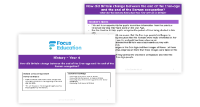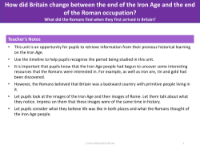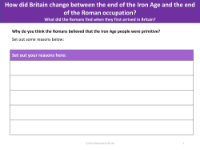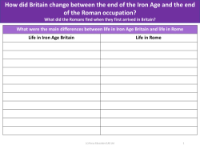What did the Romans find when they first arrived in Britain? - Presentation
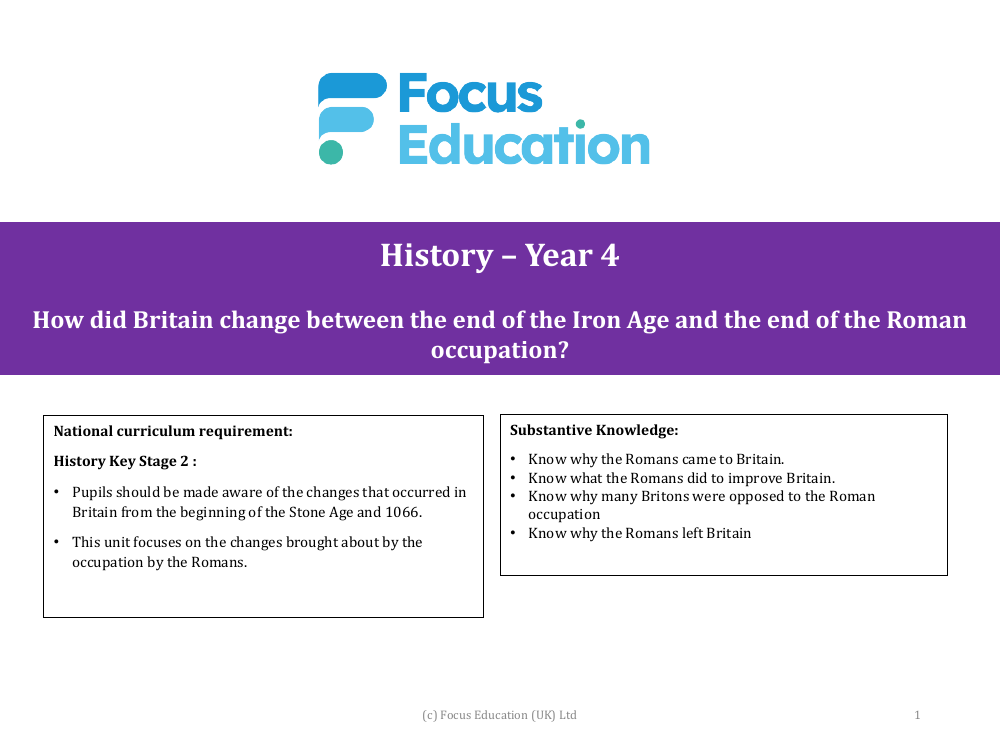
History Resource Description
The educational material provided outlines a comprehensive history unit for Year 4 students, focusing on the dramatic changes Britain underwent from the end of the Iron Age to the end of the Roman occupation. It is designed to align with the national curriculum requirements for History Key Stage 2, ensuring that pupils understand the significant impact of the Roman occupation on Britain. The unit aims to impart substantive knowledge such as the reasons behind the Roman invasion, the improvements they made to British lands, the opposition they faced from many Britons, and ultimately, why they withdrew from Britain. Through engaging activities and a structured timeline, students will explore the concept of 'Romanisation', examining how Britain was influenced by Roman culture, technology, and governance.
To deepen their understanding, students will be encouraged to consider the differences between life in Iron Age Britain and Rome, using images and discussions to compare and contrast the two societies. They will learn about the Romanisation of Britain, which refers to the transformation of British society to one that closely resembled Rome, through the introduction of Roman customs, language, and infrastructure such as aqueducts and Londinium, the Roman name for London. Disciplinary knowledge will be developed as students learn to appreciate the chronology of events, the causation of historical changes, and the importance of primary and secondary sources in historical enquiry. Vocabulary such as 'centurion', 'senate', and 'invade' will be introduced to enhance their historical lexicon. By the end of the unit, pupils will have a clear understanding of how the Romans' arrival significantly altered the British landscape and society, and the lasting legacy of their occupation.

